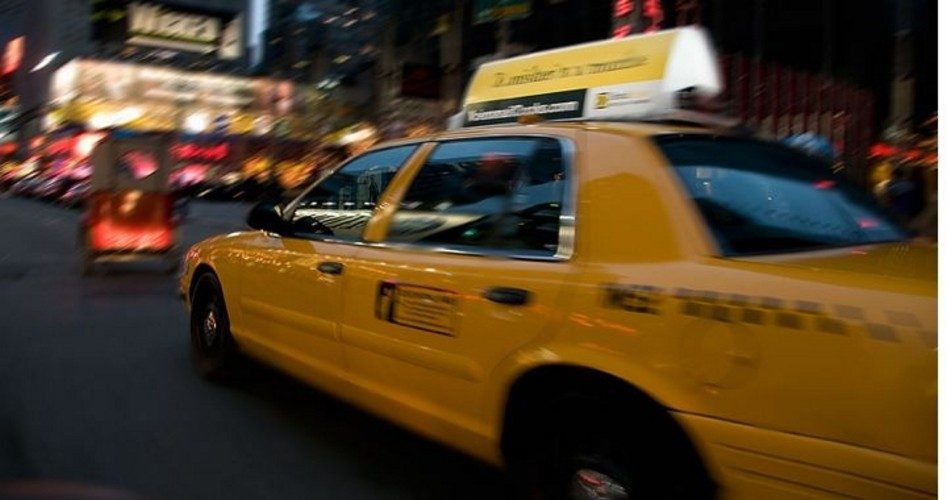
On the surface, Judge Richard Posner’s decisions, decided last Friday, appeared merely to expand the freedom of Uber, Lyft, and other ride-sharing services to operate more freely in Milwaukee and Chicago. Beneath the surface, however, Posner presents a refreshing and much-needed defense not only of freedom in general, but of the Fifth Amendment and the competitive free market as well.
Posner is one of the most respected jurists in the country. Author of nearly 40 books on jurisprudence, economics, capitalism, and democracy, he was named by The Journal of Legal Studies as the most cited legal scholar in the 20th century.
Posner ruled against the Big Taxi Cartel in Milwaukee and Chicago in cases brought by the Institute of Justice (IJ). The Milwaukee case has been working its way up to Posner’s U.S. Court of Appeals for the Seventh Circuit ever since a lower court ruled that the Milwaukee City Council’s limit on taxi permits or medallions was unconstitutional in April 2013.
The council reluctantly allowed the existing cap on taxis to be raised by 100, but the public response to the lottery offering them for sale — 1,700 applicants sought them — was so overwhelming that in July 2014 the council wisely removed all limits.
Since then, following the natural course of economic theory and reality, the value of those medallions dropped as supply increased while demand remained constant. Big Taxi, represented by a couple of taxi cab owners, sued claiming that their Fifth Amendment rights, thanks to that shrinkage, had been violated (to wit: “No person shall … be deprived of life, liberty, or property, without due process of law; nor shall private property be taken for public use without just compensation.”). As Posner explained:
The issue presented … is whether the Fifth Amendment’s prohibition against the taking of private property for public use without just compensation forbids Milwaukee, in this case, and Chicago, in the parallel case [decided the same day], to allow competition with established taxi services in the city, whether from new taxi companies (in Milwaukee) or from companies that provide close though not identical substitutes for conventional taxi services, such as Uber.
Following a historical review, Posner called the Fifth Amendment claim absurd:
The plaintiffs’ contention that the increased number of permits has taken property away from the plaintiffs without compensation, in violation of the constitutional protection of property, borders on the absurd.
Property can take a variety of forms, some of them intangible, such as patents. But a taxi permit confers only a right to operate a taxicab (a right which, in Milwaukee, may be sold). It does not create a right to be an oligopolist and thus confers no right to exclude others from operating taxis.
And then Posner launched into a discussion of just how competition is impacting the present cartelized system of Big Taxi:
Undoubtedly, by freeing up entry into the taxi business, the new ordinance will reduce the revenues of individual taxicab companies; that is simply the normal consequences of replacing a cartelized [market] with a competitive [one].
This is recognized as the essential truth about private markets and free market capitalism expressed elegantly by Joseph Schumpeter in his 1942 classic, Capitalism, Socialism and Democracy:
Capitalism … is by nature a form or method of economic change and not only never is but never can be stationary.… The fundamental impulse that sets and keeps the capitalist engine in motion comes from the new consumers’ goods, the new methods of production or transportation, the new markets, the new forms of industrial organization that capitalist enterprise creates.
The opening up of new markets, foreign or domestic, and the organizational development from the craft shop and factory to such concerns as U.S. Steel illustrate the process of industrial mutation that incessantly revolutionizes the economic structure from within, incessantly destroying the old one, incessantly creating a new one. This process of Creative Destruction is the essential fact about capitalism. It is what capitalism consists in and what every capitalist concern has got to live in.
[… Capitalism requires] the perennial gale of Creative Destruction.
Posner expanded on his discussion of the pain of the Creative Destruction in his decision in the Chicago case, saying that the fact that Uber, Lyft, and others are wreaking destruction on the old taxi cartel is a natural part of free market behavior:
When new technologies or new business methods appear, a common result is the decline of even disappearance of the old. Were the old deemed to have a constitutional right to preclude the entry of the new into the markets of the old, economic progress might grind to a halt.
Instead of taxis we might have horse and buggies; instead of the telephone, the telegraph; instead of computers, slide rules. [It would also mean that] obsolescence would mean entitlement.
IJ’s senior attorney, Robert McNamara, called Posner’s decision “pivotal” in the process of creative destruction taking place in the transportation industry:
Today’s decision is a pivotal moment for transportation freedom.… It represents the first time a federal appellate court has weighed in on the ride-sharing revolution.
With similar cases [being] brought by entrenched interests in New York, Boston and elsewhere, we’re confident that today’s decisions will lead the way toward greater economic liberty for transportation entrepreneurs across the country.
With Posner leading the way, there will also be greater economic understanding of the forces continually at work in the free market as those entrepreneurs in the transportation industry and elsewhere strive to make life better, easier, cheaper, and safer for customers everywhere. Posner’s defense of the Fifth Amendment is also heartening in a day when constitutional guarantees seem to be less relevant with the passage of time.
A graduate of an Ivy League school and a former investment advisor, Bob is a regular contributor to The New American magazine and blogs frequently at LightFromTheRight.com, primarily on economics and politics. He can be reached at [email protected].



